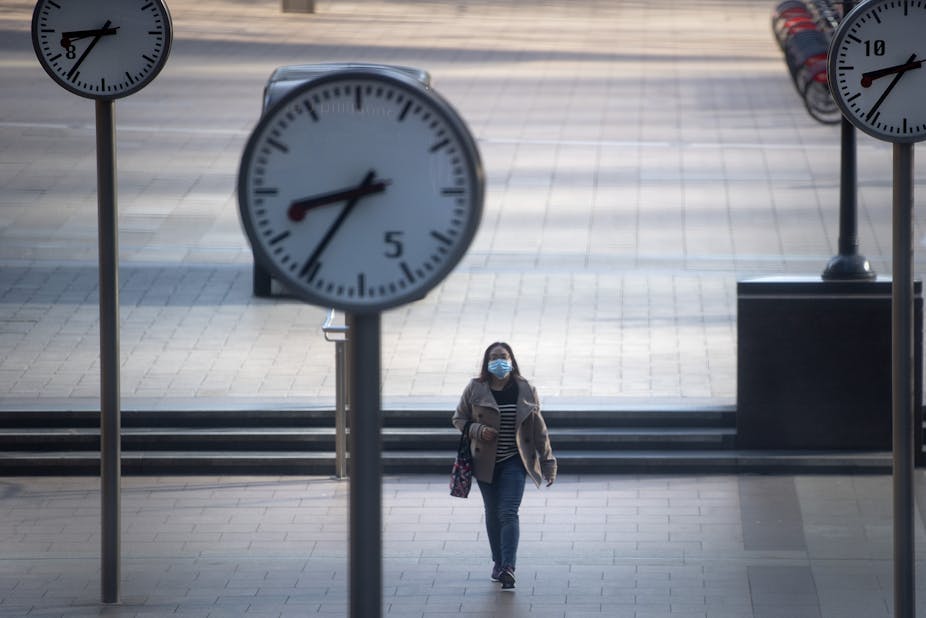The current COVID-19 pandemic is unprecedented. But it is not the biological characteristics of the virus that are most dangerous. Rather, it is how people behave towards it that really matters.
I’m a biological anthropologist interested in how humans influence and adapt to changing environmental conditions. As part of my work, I look at the risks posed to people’s health when healthcare systems are disrupted or overrun by conflict, disasters and emergencies.
COVID-19 has shown it has the ability to overwhelm healthcare systems around the world. So how people behave in response to the real and perceived risks they face is a key factor in tackling the pandemic. Indeed, history shows that behavioural factors can play a large part in slowing and stopping disease spread.
The World Health Organization (WHO) recognises the value of human behaviour in managing pandemics. Its Outbreak Communications Planning Guide suggests behaviour changes can reduce the spread by as much as 80%. This can mean the difference between healthcare sectors being overwhelmed or continuing to function.
But this places a huge pressure on governments and public health agencies to produce the right messaging on COVID-19. This is particularly tricky given that people are at different risk levels from the virus. Indeed, how can people that aren’t at high risk be encouraged to take it seriously, and tolerate significant disruption to their lives, if they are less likely to be affected?
If governments get it right, and nudge behaviour in the right direction at society, community and individual level, the resources available to fight the disease will go much further.
But get it wrong and messages risk waking the “dragons of inaction” – the psychological barriers we put in place when the problem seems too huge to address. The British stiff upper lip and manta of “keep calm and carry on” may also be problematic – as playing down concern too much could similarly hamper the response.
A history of human compassion
Disrupting one’s usual routine for the benefit of others may not be to everyone’s liking, but throughout history, humans have been willing to make sacrifices to protect the health of others. The willingness to do so seems to be part of human nature. There is evidence from prehistory of human groups supporting elderly and disabled people who would have been unlikely to survive on their own.
Evolutionary theories suggest this may be due to the “grandmother effect”, which freed up younger members of the group while elders minded the children. Another theory suggests that compassion is beneficial because it enables people to feel superior to lower animals and aids group cohesion. Or it may be that people are kind to the elderly when they are young in the hope that they will receive the same care when they grow old.

Calling on human compassion by highlighting the danger to the higher-risk groups is an important messaging strategy as it recognises that the risk is different for different people. And it ensures that those who can self-isolate understand why they need to, without unduly worrying essential workers who need to move about to keep the country going.
This is a clever approach because, in purely biological terms, SARS-Cov2 — the virus that causes COVID-19 – is not that dangerous to most people. On a graph that plots how contagious a disease is against how deadly, it sits in the bottom left-hand corner – somewhere between 2009’s Swine Flu and the 1918-1919 Spanish Flu. It spreads far less easily than measles, for example. And is far less likely to kill those infected than smallpox or Ebola.
Hygiene matters
History has shown how, if all of society works together, we can all make a difference to the final outcome. In the late 19th to early 20th centuries, for example, examinations of the decline in mortality from a range of common childhood diseases show that improvements in municipal and household sanitation brought down mortality rates considerably – even before vaccinations or antibiotics were introduced.
Research from 2003 also outlines the important role human behaviour played in managing the 2001-2002 Ebola outbreak in Uganda. And during the Spanish Flu pandemic of 1918-1919, behavioural factors including the cancellation of large gatherings, physical distancing and simple handwashing, helped to slow the spread of the disease.
During the 2014-2015 Ebola outbreak in West Africa, anthropologist Paul Farmer stated that weak healthcare systems were as much to blame for the spread of the disease as its virulence or mode of transmission. This means that keeping healthcare systems as strong as possible is our best means of defence.
When healthcare services are stretched to (and perhaps beyond) their limits, everyone needs to rally to support them. That means everyone doing the best they can to avoid catching COVID-19 and spreading it to others. This is a time to just listen to what you are being told to do – stay inside, stay away from others as much as you can, and wash your hands often. This isn’t just for the sake of own health anymore.

